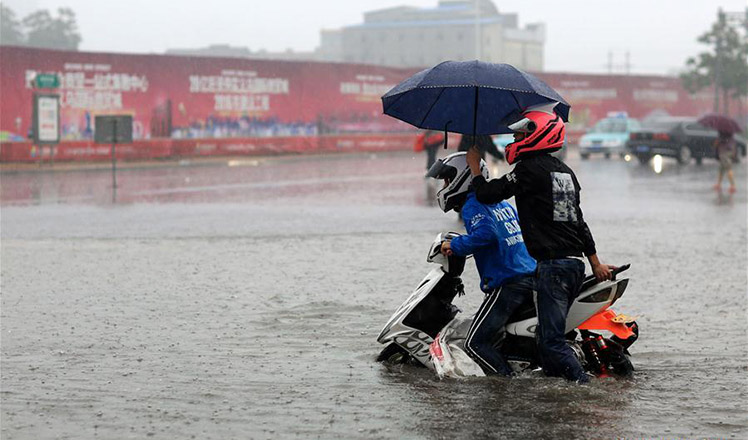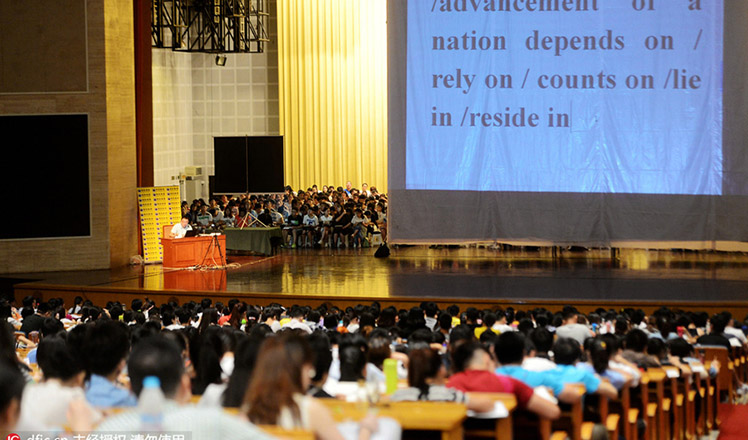Contractors seeking more M&A deals abroad
Updated: 2012-12-18 13:52
By Bao Chang(China Daily)
|
||||||||
Chinese offshore contractors are looking to arrange more overseas mergers and acquisitions in the construction market.
"We are pushing forward with acquisitions of local companies in the United States," said Li Jiqin, general manager of the overseas department of China State Construction Engineering Corp, one of China's largest construction companies and international contractors.
Over the past decade, the company's US branch has seen its revenues increase by more than 40 percent a year.
"Our corporation is transforming its way of development in accordance with the market and looking for development breakthroughs in the worlds' construction market," Li said.
The company's entrance into the US market in the 1980s gave it a means of exploring high-end construction markets, including those in Europe and other markets in North America, according to the company.
China Communications Construction Co Ltd, another State-owned construction conglomerate, is also looking for more merger and acquisition opportunities abroad.
"If we want to tap into wealthy markets, including the US and Europe, mergers and acquisitions are the best way to become a local company in the target markets," said Zhou Jichang, chairman of China Communications Construction.
In 2010, China Communications Construction spent $125 million to buy Friede Goldman United Ltd, the US company that provides design services and equipment for offshore drilling rigs.
Wang Xiaoguang, director-general of the overseas department of China Communications Construction, said Chinese contractors have made few acquisitions overseas so far, although the number has been increasing in recent years.
In response to China's rising investments abroad, the US has claimed that Chinese companies pose a threat to its national security, especially in cases when Chinese State-owned enterprises try to buy US companies.
"That bias is the source of many restrictions on Chinese construction companies," said Li Jiqin of China State Construction Engineering.
Rhodium Group, a New York-based market research firm, said China is on a track to invest a record of $8 billion in the US in 2012, up from $5.7 billion in 2010.
Global consulting firm KPMG, in a recent report on China's overseas investments, said it has proved difficult to integrate businesses following overseas mergers and acquisitions, although such deals still provide a good way to acquire foreign companies' techniques, brands and overseas sales networks.
Chinese contractors have meanwhile been trying to make more direct investments in places such as Africa, where they have a well-established presence.
China Jiangxi Corp for International Economic & Technical Cooperation is seeking to diversify the operation of its international business by investing more in the building-materials and solar-power industries.
The State-owned enterprise has established a series of production plants and construction bases abroad, projects meant to support the expansion of its international business.
Xu Guojian, general manager of China Jiangxi Corp for International Economic & Technical Cooperation, said his company has invested more than $6 million in overseas projects, setting up various metal factories and asphalt-mixing plants in Botswana, Zambia, Ghana and Papua New Guinea.
"The establishment of the factories not only ensures we can supply our own construction material, but also reduces the total cost of construction projects," Xu said.
Wang Xiaoguang said: "This flurry of Chinese industrial companies exporting capital to markets abroad will cement China's construction contractors' dominance globally."
According to an annual report by the China International Contractors Association, a government-backed industry organization under the Ministry of Commerce, Chinese offshore contractors may be faced with various difficulties overseas in 2013, including deteriorating business conditions abroad, a rise in protectionism and greater competition from Japan and South Korea.
- Fashion of Queen Elizabeth on exhibition in London
- Hollande urges Britain to begin EU exit talks 'as soon as possible'
- Trump vows law and order if elected
- Chinese cuisine stuns Thai princess
- Security Council holds first secret poll on next UN chief selection
- Turkey's Erdogan declares state of emergency after coup bid

 Things you may not know about Major Heat
Things you may not know about Major Heat
 Unveiling the secrets of Elizabeth II’s wardrobe
Unveiling the secrets of Elizabeth II’s wardrobe
 Go global: Wanda's top 10 foreign acquisitions
Go global: Wanda's top 10 foreign acquisitions
 Hot pepper and ice tub challenge held in E China
Hot pepper and ice tub challenge held in E China
 Ten photos from around China: July 15 – 21
Ten photos from around China: July 15 – 21
 Heavy rain, floods across China
Heavy rain, floods across China
 Super-sized class has 3,500 students for postgraduate exam
Super-sized class has 3,500 students for postgraduate exam
 Luoyang university gets cartoon manhole covers
Luoyang university gets cartoon manhole covers
Most Viewed
Editor's Picks

|

|

|

|

|

|
Today's Top News
Ministry slams US-Korean THAAD deployment
Two police officers shot at protest in Dallas
Abe's blame game reveals his policies failing to get results
Ending wildlife trafficking must be policy priority in Asia
Effects of supply-side reform take time to be seen
Chinese State Councilor Yang Jiechi to meet Kerry
Chinese stocks surge on back of MSCI rumors
Liang avoids jail in shooting death
US Weekly

|

|







